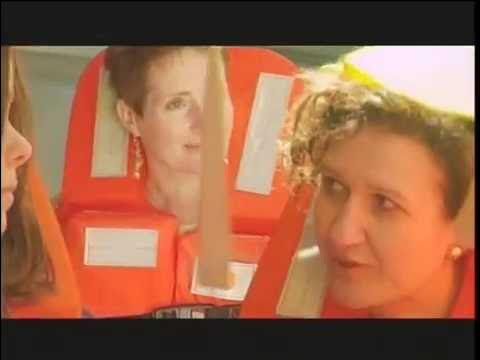12 5 system 1 and 2
Summary
TLDRThe video script explores the irrationality of human behavior concerning sustainability. It challenges the belief that providing information alone can prompt sustainable actions. Drawing on Daniel Kahneman's 'Thinking Fast and Slow,' the script distinguishes between 'System 1'—fast, unconscious thought processes—and 'System 2'—slower, rational thinking. Examples such as bike riding and home insulation illustrate how ingrained habits (System 1) often override rational choices (System 2), suggesting a need to address unconscious barriers to foster sustainable behaviors.
Takeaways
- 🧠 The human mind is not as rational and conscious as often believed, challenging the notion that providing information alone can change behavior towards sustainability.
- 🏆 Daniel Kahneman's work, including his book 'Thinking Fast and Slow,' highlights the distinction between two thought processes that influence our actions and decisions.
- 🔄 System one represents fast, unconscious thought processes that are efficient and require less energy, often operating without our awareness.
- 🤔 System two is the slower, more conscious, and rational thought process that requires more effort and is engaged for complex tasks or novel information.
- 👀 Our brain encodes visual and auditory information into understanding through system one, which is automatic and effortless.
- 🚴♂️ Learning complex skills like riding a bike initially requires system two but can become a habitual, system one process over time.
- 🏠 Insulation of houses is a rational choice for sustainability, but people may not engage in it due to unconscious barriers like the hassle of attic cleaning.
- 🚗 People often stick to driving habits due to unconscious system one processes, even when rational alternatives like public transport may be more efficient.
- 💡 Sustainability interventions can be more effective by addressing unconscious barriers (e.g., subsidies for attic cleaning to encourage insulation).
- 🌐 Communication about sustainability should consider the impact of unconscious processes and how they influence the way we process information.
- 🛣 The transition to sustainable behavior is hindered by unconscious thinking, indicating a need to focus on understanding and altering system one processes.
Q & A
What is the traditional belief about the human mind in terms of decision-making?
-The traditional belief is that the human mind is very rational, economic, and conscious, capable of making decisions based on the right information provided.
Why is it assumed that providing information should lead to sustainable behavior?
-It is assumed because the belief is that if people are informed about the consequences of their actions, they should logically conclude that they should alter their behavior to be more sustainable.
Who is Daniel Kahneman, and how does his work relate to the discussion of the human mind's rationality?
-Daniel Kahneman is a psychologist who won the Nobel Prize in Economics. His work, particularly in his book 'Thinking Fast and Slow,' discusses the irrationality of the human mind and introduces the concepts of System 1 and System 2 thinking processes.
What are System 1 and System 2 according to Daniel Kahneman?
-System 1 refers to fast, efficient, unconscious thought processes that require little energy, while System 2 is the slower, more rational, and conscious thought process that requires more effort.
How does System 1 operate in our daily lives without us being aware of it?
-System 1 operates unconsciously, processing information quickly and efficiently without our awareness, such as encoding visual and auditory information into images and words we understand.
What is the role of System 2 in understanding and interpreting information?
-System 2 is engaged for deeper understanding and interpretation of information, which might require more effort and energy, especially when dealing with complex or unfamiliar concepts.
Can you provide an example of how a complex task becomes an automatic process through System 1?
-Learning to ride a bike is an example. Initially, it is a complex process that engages System 2, but once it becomes a habit, it is automated into System 1, allowing people to ride while doing other tasks.
How does the concept of System 1 and System 2 thinking apply to sustainability?
-Sustainability-related behaviors are often influenced by unconscious System 1 processes, such as habits and barriers that may not be rational but affect our actions more than the informed decisions of System 2.
What is an example of how System 1 thinking can act as a barrier to sustainable behavior?
-One example is the reluctance to insulate houses due to the perceived hassle of cleaning the attic before insulation, which is a System 1 barrier that can be overcome with subsidies for attic cleaning.
How do car owners demonstrate System 1 thinking in their choice of transportation?
-Car owners often stick to driving habits due to the feeling of control it provides, which is a System 1 process, rather than making a rational decision based on efficiency, time, or cost.
Why is it important to focus on System 1 processes in promoting sustainable behavior?
-Focusing on System 1 processes is important because they are often the unconscious barriers or motivators that influence behavior more significantly than the rational considerations of System 2.
Outlines

Esta sección está disponible solo para usuarios con suscripción. Por favor, mejora tu plan para acceder a esta parte.
Mejorar ahoraMindmap

Esta sección está disponible solo para usuarios con suscripción. Por favor, mejora tu plan para acceder a esta parte.
Mejorar ahoraKeywords

Esta sección está disponible solo para usuarios con suscripción. Por favor, mejora tu plan para acceder a esta parte.
Mejorar ahoraHighlights

Esta sección está disponible solo para usuarios con suscripción. Por favor, mejora tu plan para acceder a esta parte.
Mejorar ahoraTranscripts

Esta sección está disponible solo para usuarios con suscripción. Por favor, mejora tu plan para acceder a esta parte.
Mejorar ahora5.0 / 5 (0 votes)






